Achieving vibrant health is within your reach! By understanding the impact of toxins and making small, informed changes, you can protect your hormones, boost energy, and feel your best every day. Our modern world is filled with chemical exposures that can profoundly affect our hormonal health. According to the Endocrine Society, there are nearly 85,000 human-made chemicals in the world, and 1,000 or more of those could be endocrine disruptors, based on their unique properties. From household products to environmental pollutants, these toxins disrupt the body’s delicate endocrine balance, impacting overall well-being. Let’s explore how these chemicals influence hormones, how we encounter them in daily life, and effective strategies to support detoxification naturally.
The Link Between Chemicals and Hormonal Imbalance
When toxins and hormones aren’t efficiently excreted, they recirculate through the bloodstream. This can lead to oxidative stress, hormonal imbalances, and symptoms like weight gain, fatigue, disrupted sleep, mood swings, and low libido. Common patterns include:
- Low Testosterone and Progesterone Levels: Testosterone and progesterone imbalances, seen in both men and women, can lead to reduced muscle mass, fatigue, and low energy. These imbalances may also affect reproductive health, causing issues like decreased libido, infertility, irregular menstrual cycles, or hormonal mood swings. Both hormones are essential for maintaining overall vitality and well-being, and their disruption can result in significant physical and emotional effects.
- Estrogen Dominance: Toxins such as BPA and phthalates mimic estrogen, disrupting hormonal signaling and causing an excess of active estrogen in the body. This estrogen imbalance can lead to a range of issues, including weight gain, mood swings, irregular menstrual cycles, reduced fertility, hormonal acne, increased risk of certain cancers (such as breast and endometrial cancers), and disrupted thyroid function.
- Thyroid Disruption: Chemicals can disrupt thyroid hormone synthesis, leading to imbalances that affect metabolism and energy regulation. These imbalances can result in symptoms such as weight gain or difficulty losing weight, fatigue, sluggishness, sensitivity to cold, hair thinning, dry skin, constipation, and slowed heart rate. Conversely, in cases of excessive thyroid activity, individuals may experience weight loss, rapid heart rate, increased appetite, sweating, restlessness, and anxiety.

Everyday Sources of Toxic Exposure
Understanding where toxins come from is the first step to mitigating their impact. Reducing exposure, though challenging, is vital for health. Common sources researched by National Institute of Environmental Health Sciences include:
- Plastics: BPA and phthalates from packaging and bottles, especially when heated.
- Household Products: Cleaning agents, air fresheners, scented candles, fragrances, and cosmetics containing endocrine disruptors.
- Processed Foods: Additives, preservatives, and pesticides in non-organic items can interfere with metabolic and hormonal health.
- Environmental Pollutants: Heavy metals and chemicals absorbed through air, water, and soil add to the body’s toxic burden.
- Nonstick Cookware and Packaging: PFAS in cookware and fast-food wrappers.
- Textiles and Furniture: VOCs from flame retardants and treated fabrics.

Natural Ways to Support Detoxification
Supporting the body’s natural detoxification pathways is essential for reducing toxic load and restoring hormonal balance. Here are some effective strategies:
1. Glutathione Push:
Glutathione, the body’s master antioxidant, helps neutralize toxins and support liver detoxification. A glutathione push can enhance the body’s ability to eliminate harmful substances, as it facilitates the transport of toxins by at least 4 different mechanisms.
2. Foot Bath Detox:
Foot baths designed for detoxification help draw out toxins through the pores, promoting systemic cleansing and relaxation.
3. Supplements:
Specific supplements can support liver function, antioxidant activity, and hormonal balance. Consult with our practitioners to identify the supplement that best addresses your symptoms.
4. Choose Organic:
Opting for organic foods reduces exposure to pesticides and harmful chemicals. Incorporating whole, unprocessed foods supports the liver and gut in maintaining detox pathways.
5. Hydration and Fiber:
Drinking plenty of water and consuming a diet rich in fiber aids in flushing toxins from the body and supporting gut health, a critical factor in hormonal regulation.

Breaking the Cycle
Toxin accumulation creates a vicious cycle of hormonal and metabolic disruption. By reducing exposure and actively supporting detoxification, you can reclaim balance, energy, and vitality. For personalized guidance, visit our clinic to learn more about holistic strategies to optimize your health.
Your health starts with small, informed choices. Begin today and feel the difference tomorrow!
Experience the Transformation
Join us at Lake Oswego Health Center as we strive to improve your health. Whether you’re seeking relief from fatigue, protection against infections, or a boost to your overall well-being, we’re here to support you every step of the way.
To book an appointment now, call today at: 503-505-9806


